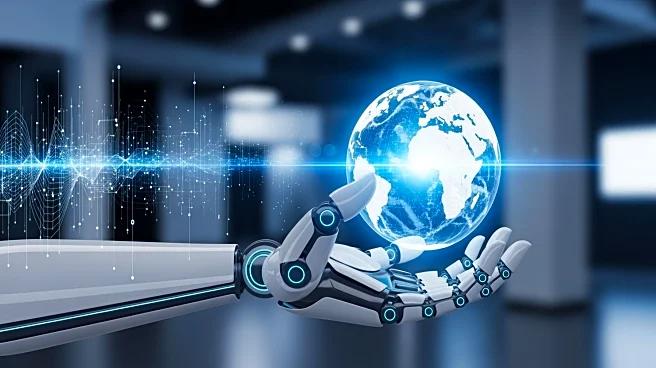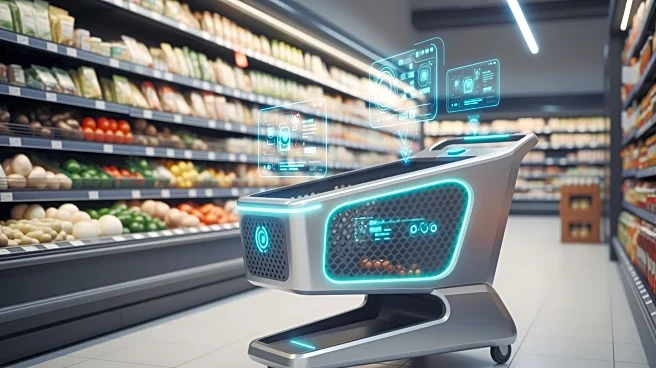What's Happening?
A series of major international robotics events have been scheduled from late 2025 through 2026, showcasing advancements in robotics and artificial intelligence. Notable events include the International Robot Safety Conference in Houston, USA, from November
3-5, 2025, and Automate 2026 in Chicago, USA, from June 22-25, 2026. These conferences will bring together industry leaders, researchers, and innovators to discuss the latest developments in robotics technology. Other significant events include the ICRA 2026 in Vienna, Austria, and the IROS 2026 in Abu Dhabi, UAE, which will focus on intelligent robots and systems. These gatherings are expected to feature cutting-edge technologies such as next-generation hybrid engines and humanoid robots.
Why It's Important?
These conferences are crucial for the robotics industry as they provide a platform for sharing knowledge, fostering innovation, and forming strategic partnerships. The events are expected to drive technological advancements and influence the future direction of robotics and artificial intelligence. The U.S. economy, in particular, stands to benefit from hosting events like Automate 2026, which could attract international investment and boost local industries. Additionally, these conferences will address safety standards and regulatory frameworks, which are vital for the integration of robotics into various sectors, including manufacturing, healthcare, and transportation.
What's Next?
As these events approach, stakeholders in the robotics industry are likely to prepare by developing new technologies and solutions to showcase. Companies may also seek collaborations to enhance their offerings and gain competitive advantages. The outcomes of these conferences could lead to policy recommendations and influence future regulatory measures. Attendees will likely include government representatives, who may use insights gained to shape public policy and support the growth of the robotics sector.
Beyond the Headlines
The focus on robotics and artificial intelligence at these conferences highlights a broader trend towards automation and digital transformation across industries. This shift could have significant implications for the workforce, necessitating new skills and potentially leading to job displacement in certain sectors. Ethical considerations, such as the impact of AI on privacy and security, will also be critical topics of discussion. Long-term, these developments could redefine economic structures and societal norms, emphasizing the need for adaptive education systems and robust ethical guidelines.















